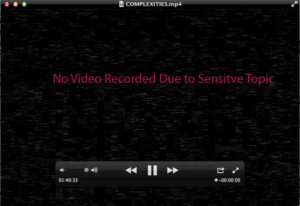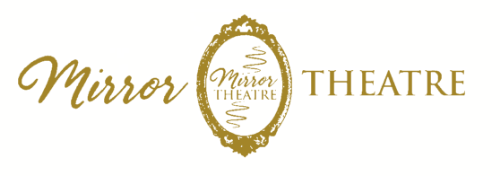| These scenes are remount of vignettes found in scripts from a variety on Mirror Theatre’s performance workshops on a variety of social issues. The scripts can be found in: Playbuilding as Qualitative Research: A Participatory Arts-based Approach. |
CastDavid Berezan, Diane Conrad, Cindy Gaffney, Wade Hayden, Oliver Kamau, Kerry McPhail Hayden, Carmen Norris, Joe Norris, Bali Panesar, Asha Ram, Phil Zinken |
| watch?v=dUd6PphruAs |
Playbuilding Ch 4 PressuresA short clip representing competing narratives in the minds of two young people contemplating physical and psychological pressures for sex. Who and what are the different types of voices; and who is talking to whom? |
 |
Playbuilding Ch 5 The “M” WordUnfortunately, at the time of of this remounting with a number of original cast members, the sensitivity of the three scenes on masturbation were deemed too risky to be performed by those members who now worked within the school system. Seriously! 😥 A sign of our times… |
| watch?v=W8p8be-JtMY |
Playbuilding Ch 6 Funky ShirtTraditional male discourse on modesty meeting a progressive feminist perspective. How should this couple move forward and who is responsible for what here? |
| watch?v=UlHX3-FvbTY |
Playbuilding Ch 7 Cattle CallBody Image and perception “how does what sells” and what is confident and real interact in how we see each other? |
| watch?v=XUO2w_ErLA8 |
Playbuilding Ch 8a I Expect-JugglingSome many demands, so few hands. What does this mean for teachers, for university instructors, and how do we frame this dialogue of wants and needs? |
| watch?v=pTlcLAf28YY |
Playbuilding 8b I Expect-Student TeacherExploring mentor-teacher expectations on student-teachers. Can people really meet all these demands? How are these demands communicated, and how might these compete? |
| watch?v=Az0RfW5_1Sg |
Playbuilding Ch 8c I Expect-Mentor TeacherExploring expectations on mentor-teachers. Who is expressing their needs here and who is not? Whom is talking to whom? |
| watch?v=Y-HRpzL97ys |
Playbuilding Ch 8d I ExpectExploring student-teacher expectations on University Supervisors. How are these realistic and practical, yet on the other-hand idealistic? What are the demands being placed here? Are universities training teachers or providing customer service? |
| watch?v=0NE5zUS2Ke8 |
Playbuilding Ch 9 PartyExploring power, difference, inclusion and exclusion, but who here has which of these, and is everything balanced quite as it may seem? |
| watch?v=pvJ3xdIiVg8 |
Playbuilding Ch 10 DaresA look at risk, payoffs, and who is playing vs. who is being played. What do you see here and how does this relate to teaching and society in general? |
| watch?v=eCnvmbc-stc |
Playbuilding Ch 11 Are You Really Listening?To whom are we listening to when we each have an agenda? On which different tracks do our inner dialogues and outer dialogues run, and which are more honest and can we hope to foster one over the other? |
| http://www.youtube.com/watch?v=N6xEUMbJQLI |
Playbuilding Ch 12 Who’s With WhomKnow your place, they say. But who makes up these rules and why? What happens when there are no rules? |
| watch?v=ngiGip5SNcU |
Playbuilding Ch 13 Whose pencil?Property, democracy, and testimony. Whose voice is heard and why? How does an omniscient perspective factor into matters of social justice? |
| http://www.youtube.com/watch?v=woJZuZjy8Fo |
Playbuilding Ch 14 DistilationA metaphor for the complexity of research. |
| http://www.youtube.com/watch?v=UueqUU_2z0A&feature=youtu.be |
No (aka What’s the Fine Line?)This scene is not a chapter in the book but is referred to. It deals with powers, communication and escalation of conflict/violence. We ask, where are examples of abuse of power? At what stages could a change have been introduced to prevent an escalation? What are the vocal and body signals being sent/received? What lines were crossed? How does this metaphorical scene translate into our experiences? |
